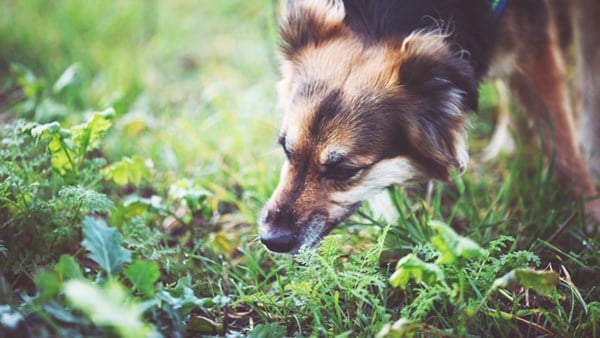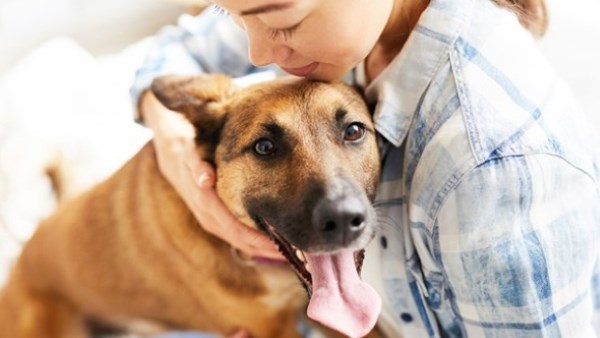Dog Neutering and Spaying
If you’re thinking about neutering your dog it’s important to gather all the information to make the right decision for your pet. At Medivet, we’re here to guide you through the process and help you decide if it’s the right step and when the timing is ideal.

What is neutering?
Like most dog owners you want the best for your canine companion. Neutering is a procedure, carried out under general anaesthetic, where a vet removes your dog’s reproductive organs so they can no longer breed. For some dogs neutering will be the best choice, for others though, it can be better to leave them intact. Your vet give you all the options along with the risks and benefits so you can make an informed choice.
Castration – For male dogs neutering is called castration. Your vet will remove your dog’s testicles which takes away their main source of testosterone and stops them being able to get a female dog pregnant.
Spaying – Spaying is the term for female dogs. Your pet will go to sleep for a short time and the vet will remove their ovaries and the uterus so they can no longer become pregnant. Sometimes the vet may remove only the ovaries though this isn’t commonly practised in the UK.
Benefits of neutering
Deciding whether to neuter your pet is a personal choice based on your own thoughts and feelings and any advice you get from your vet. If you don’t plan on breeding from them it can bring with it many benefits and can help your dog live a long and happy life. However, it’s not without its risks either.
Benefits for male dogs
- Can prevent testicular cancer and the reduce the risk of prostate problems in later life - Male dogs can suffer from Benign Prostatic Hyperplasia where the prostate becomes enlarged as they get older
- Reduces aggression and roaming – Removing your dog’s testicles also removes their main source of testosterone. This may help reduce aggression or roaming behaviours such as searching for a female to mate with
Benefits for female dogs
- Prevents unwanted pregnancies – your dog will no longer be able to get pregnant. Spaying also stops phantom pregnancies
- Prevents seasons – Spaying will stop your female dog having any more seasons (being in heat) and you’ll no longer have to keep her away from uncastrated males
- Womb infections and cancers – neutering can prevent womb infections and stop or reduce the risk of other cancers
- Eliminates pyometra in female dogs - Pyometra is an infection of the womb common in unspayed females. Correct surgical neutering can eliminate this risk
Risks of neutering your dog
It’s important to remember that while neutering can be beneficial for your dog it can increase the risk of some health issues and these need to be carefully weighed against the benefits. Some of these will be breed specific and your vet will talk to you about any risks associated with your pet.

Is neutering right for my dog?
Some pet owners are adamant it’s the right thing to do. Others would rather avoid surgery of any kind. If you’re not sure whether neutering is right for your dog, talk to your vet. They’ll be able to explain the benefits and the risks of neutering as well as the benefits and risks of leaving your dog intact. If you do decide to get your dog neutered, they’ll talk to you about best time to get it done.
Neutering with Medivet
Our vets are here to help you make the best decision for your dog. They’ll explain the process, the risks and the benefits so you can make an informed choice either way, armed with all the facts.
When should dogs be neutered?
Neutering is considered on a case-by-case basis taking into consideration several factors - sex, age, breed, size, any existing health issues and their lifestyle.
Overweight dogs might have to lose weight before your vet will carry out the procedure. And while neutering can improve some unwanted behaviours it can also make others worse. If you want to get your dog neutered for behavioural reasons talk to your vet or an animal behaviourist first.
What is the procedure of neutering?
Neutering is very common but as with any surgery there are risks. Your vet will talk you through the process and tell you how you need to prepare.
Your dog may be given a light sedative to keep them calm before they’re given a full anaesthetic to make them sleep. During the surgery they’ll be given pain relief.
For female dogs – The vet will make an incision in your dog’s tummy through which they’ll remove the ovaries and the womb. This is called an ovariohysterectomy. In some clinics it’s possible for your dog to have a laparoscopic spay, also known as keyhole surgery or a lap spay. It’s a minimally invasive surgical procedure where a camera and instruments are inserted through small incisions, around 1 cm long, in the abdomen.
For male dogs – The vet will make a small incision in the scrotum so the testicles can be removed.
Your pet will be looked after by a nurse after the surgery and the clinic will give you a call to let you know how they’re doing. Most animals recover quickly and can go home within a few hours. Some may take a little longer. Your dog may be sleepy for a few hours as the anaesthetic wears off. Don’t worry, it’s completely normal.

Does neutering affect a dog’s health?
Neutering can cut or reduce the risk of certain illnesses and ensure your dog lives a long and healthy life but it can also increase some risks. It’s important to weigh up the risks and benefits before you make your decision.
Post neutering recovery
Most dogs recover quickly from neutering and can go home the same day but it’s important to follow your vet’s post-op care.
- Medication – Your vet will prescribe pain relief
- Protecting the incision – Once your dog’s feeling better it’s likely they’ll want to run around like normal but keep them calm for around seven to 10 days after to prevent infection or dislodging the stitches. You might need to keep them on a lead, get them to wear an anti-scratch cone, confine them to one room or crate them
- Check-ups – You vet will probably want to see them to check how they’re doing in the days after surgery but if you’re worried just give them a call. The incision typically takes 10 days to heal provided they can’t lick it
Are there alternatives to surgical neutering?
There are several alternatives for both male and female dogs but they are much less common that traditional castration or spaying. For more information on these alternatives please speak to your vet.

Book A Neutering Appointment
Find your local Medivet practice and book an appointment to neuter your dog.
Find a practice
Our Healthcare Plans For Your Dog
With the Medivet Healthcare Plan, you can save an average of £285 each year and that’s without discounts that the plan offers on top.
Learn moreRelated Articles

Heart Disease In Dogs
Heart disease affects up to 15% of dogs. Find out more about the signs & symptoms of heart disease in dogs.
Read article
The Responsible Dog Owner's Guide
Owning a dog is a huge commitment. Refresh your knowledge of responsible dog ownership with our complete guide.
Read article
The Importance Of Preventative Care
Vaccines, boosters and medical checks are important for maintaining your pet's health.
Read article

